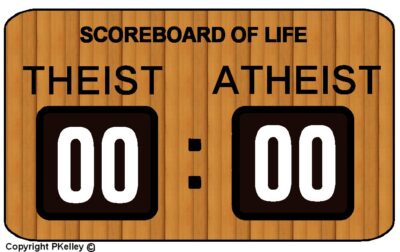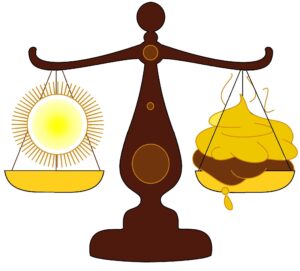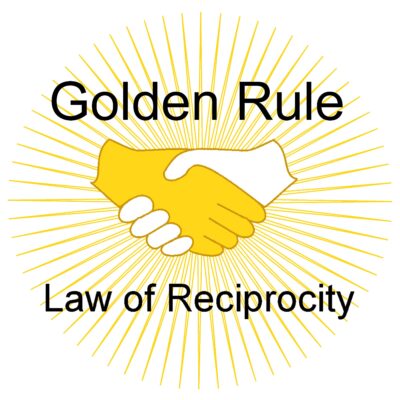 In the World of Philosophy, Psychology, Ideology and spirituality
In the World of Philosophy, Psychology, Ideology and spirituality
The one thing that connects one atheist to another atheist is a general consensus that God, gods, and supernatural realms do not exist.
After that, it’s like Sumo wrestling, only with grey matter. Is it possible for one to be atheist and simultaneously not perform particularly well at deep thinking?
If the question is asked “what is an atheist” does the shadow assume ideology? The big three ideologies to which many shadows presume to promote atheistic thought.
- Socialist,
- Progressive,
- Communist
Every ideology comes with its own set of ever-changing rules to which adherents (true believers) must comply in order to be accepted into the social structure.
Ideology Defined:
ideology, a form of social or political philosophy in which practical elements are as prominent as theoretical ones. It is a system of ideas that aspires both to explain the world and to change it.
We are of the simple minded notion that atheism lacks any cohesive structure what-so-ever which means the atheist is free to think, unbounded by the laws of God or man….Mother Nature might have a few objections however, and yes, we view nature as a mostly feminine gift for no apparent reason other than we realize it’s anthromorphication and a great nmumonic.
Atheists with Organized Ideology
A puzzling contradiction. On the one hand an atheist may resent being brainwashed or otherwise deluded into belief of Sky Hook and Cranes, and turn toward anti-religion as a form of revenge thinking. We believe atheists who express overt hostility toward practitioners of faith, lean on hostile feelings as psychological crutches to prevent back-sliding or weakening of resolve.
The concept of an atheist who so strongly adheres to an ideology they willingly over look inconsistencies or falsehoods, just doesn’t jive as a true atheist. There’s some form of superstition or fear driving them to ignore that which is false in their new faith.
 If there were an invisible scoreboard of supernatural belief on display at birth all sides begin with zero.
If there were an invisible scoreboard of supernatural belief on display at birth all sides begin with zero.
Belief in supernatural deities who tally sins and monitor lives develops as it is taught or influenced through experiences unexplained or unexplainable at present or ever.
After we pass the invisible scoreboard, an atheist may choose to develop self governing rules based upon training, education and experience, decide to fast-track it and fall into any number of philosophies attractive and available to folks who fancy themselves “free thinkers,” or just wing it and live and let live, go along to get along.
We believe, however that once an atheist selects an established, organized philosophy, they no longer qualify for the moniker of “free thinker” as ideologies are designed to do the thinking for adherents.
Where Do We Go From Here?
We make our own ideology based upon Reason, Rationality and … be prepared to practice Unloyalty.
Golden Rule AKA Ethic of Reciprocity
While studying the history of the Golden Rule it occurred to Chaos, the meaning of Zeros and Ones as it applies to belief and unbelief.
We will attempt to explain:
Somewhere within ideology there exists a mean, a center, connecting point where extremes merge.
Extremes of Zeros and Ones eventually converge to provide a balance to life.
That Said…
 The ideology of the Golden Rule is considered A universal ethical principle, a law of reciprocity. The Golden Rule concept exists in some form in most religious and ethical traditions.
The ideology of the Golden Rule is considered A universal ethical principle, a law of reciprocity. The Golden Rule concept exists in some form in most religious and ethical traditions.
A simple folk rule, A Golden Law, easy to remember, easy to apply. A code of conduct which can be applied to interactions between peoples of many cultures with shared history of similar Golden Rule ideologies. Think of the Golden Rule as a “love your neighbor as yourself” sort of sociological survival guide which gives a distinctive advance to cooperative human groups to survive and reproduce.
Analyze Ideology
Realize ideology is “the imaginary relation to the real conditions of existence.”
Earliest mentions of a Rule of Reciprocity appears in the story of The Eloquent Peasant, dates to the Middle Kingdom (c. 2040–1650 BC): “Now this is the command: Do to the doer to make him do.” A negative affirmation of the Golden Rule (c. 664–323 BC) was found in a papyrus: “That which you hate to be done to you, do not do to another.”
Chaos reminds 2040 BC is over 4,000 years ago.

Brief Definitions of the Top Ten World Ism’s
- Theism a belief in God, or in a god.
- Atheism the opposite of, or the absence of, theism (Buddhism and Jainism atheistic religions)
- Agnosticism “without knowledge,” or gnosis. one way or the other, regarding God (or gods)
- Monotheism “one-god-ism,” or the belief in the existence of a single God (to the exclusion of any other additional gods).
- Polytheism “many-gods-ism” (or “multiple-gods-ism”), the belief in more than one god.
- Deism God initially created the universe, but subsequently left it to its own devices
- Henotheism practice of worshipping just one god in particular, while nevertheless recognizing the existence of other perfectly valid gods.
- Pantheism asserts that everything is divine, because everything is God.
- Panentheism emphasizes both that God suffuses and supersaturates everything while simultaneously existing or extending infinitely beyond the universe.
- Monism philosophy theory all of reality consists solely of one single, undivided Unity
Source: beliefnet.com Ten Essential Isms
Chapter I – More to come, stay tuned…Chaos works in mysteriously lazy ways
Question:
Have you ever been actively threatened with physical harm at your workplace by an atheist for your beliefs?


